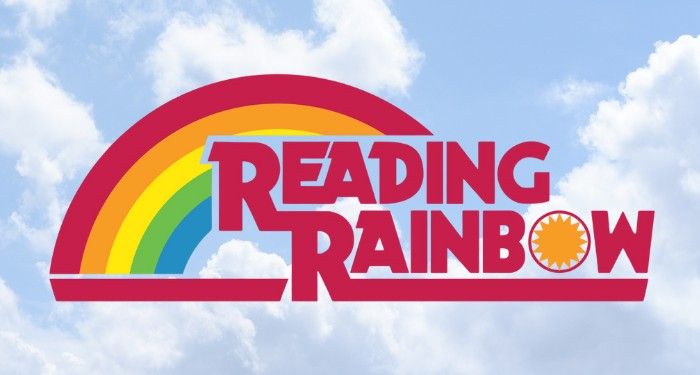Somewhere in my house, rolled up in a poster tube, is a map of Europe the way it was in my childhood—Germany split in half, Yugoslavia still one country, the Soviet Union looming large. My mother is German, and I grew up moving back and forth between the U.S. and what was then West Germany. I was in college when the Berlin Wall fell, a moment I never imagined would occur in my lifetime. I kept the old map on my wall for many years afterwards as a reminder of how things had once been. Eventually, though, I took it down, put it away.
Thirty-five years after reunification, Germany is still reckoning not just with its division, but with the flawed process by which it became one country again. I’ve seen it first-hand. In 2017, my husband, two children, and I moved for two years to Leipzig, a former East German city I’d visited regularly since my parents moved there in the early 1990s. By 2017, nearly three decades had passed since reunification, yet Germany’s division was still ever-present, raised again and again in conversations about who owned what, who believed what, who resented whom, who voted for whom. During those years, I wrote the first draft of my debut novel, Restitution, which tells the story of Kate and Martin, German-American siblings faced with a decision after reunification: Should they try to reclaim the house in East Germany from which their grandparents fled in the 1950s? But another family has lived in the house for decades, and the question of right and wrong is far murkier than Kate and Martin initially expect. As with all stories about divided countries, Restitution is about identity and belonging, about what it means to be forced to leave a country forever, but also what it means to see your homeland become unrecognizable or disappear altogether.
The novels below are set in countries that have fractured, shifting our maps and our conceptions of the world. The reconfigurations covered on these pages take many different shapes, but all are born of violence, and the scars are still visible. These books powerfully illuminate the lingering political and personal damage of these ruptures, which cannot be hidden away like an old map.
If You Leave Me by Crystal Hana Kim
If You Leave Me is both a war story and a love story. Against the backdrop of the Korean War, two cousins fall in love with the same girl, Haemi. One can offer her money and stability. The other is her childhood love. In a country torn apart and turned upside down by war, Haemi chooses stability—and a lifetime of regret. When the war ends with the two Koreas still separate, Crystal Hana Kim’s characters wonder what it was all for. If You Leave Me is, above all, a heartbreaking novel about love, but it is also the story of a country splitting in half, of families growing apart, of the unimaginable becoming commonplace. In Haemi’s words: “…the war had suddenly made us two countries with no shared history.”
Ghost Season by Fatin Abbas
Fatin Abbas’ novel takes place during the second Sudanese civil war in the early 2000s. Ghost Season tells the story of the staff and volunteers at an international NGO based on the border between the warring north and south regions. Within the walls of the NGO compound, Abbas’ characters build a tentative community that cuts across national and ethnic lines. Ghost Season explores the protection this community offers, but also its tragic limits. Violence encroaches in the lead-up to the accords that will ultimately set the stage for the creation of two separate states. Amidst all the horror, Ghost Season is also a love story, showing again and again how love in all its different forms (romantic, parental, platonic) can offer, if not a happy ending, then at least a reason to go on.
Milkman by Anna Burns
Milkman, which won the 2018 Booker Award, does not explicitly mention Northern Ireland. In fact, the book steers clear of proper nouns and names, instead using descriptors, such as “country over the water” and “country over the border.” Still, it is clear Milkman is about a young woman in 1970s Northern Ireland, who is being stalked by a paramilitary leader in her neighborhood. At the same time (and perhaps because of his interest), she faces constant surveillance. Intimate and political oppression quickly become one and the same. In a place of violence and divided loyalties, everyday items and mundane choices are deadly political symbols. At once horrifying and deeply revealing, Milkman lays bare the ways in which communities and individuals fall apart.
House of Caravans by Shilpi Suneja
At the heart of House of Caravans are two brothers, torn apart and then reunited during the partition of Pakistan and India. Suneja depicts the brutality of colonial rule as well as the devastation caused when the British leave, redrawing boundaries and cleaving apart communities in the process. The reverberations of these ruptures are felt across generations in this moving novel about loss and second chances. The prologue sets the stage for a story that leaves no one unscathed. Shortly after Partition, one of the brothers seeks to board a train to escape from Pakistan to India, but the violence of that upheaval has gotten there first: “No one is left alive. The train is no longer a train, but a tidal wave of blood. In Punjab, the land of five rivers, a sixth is born.”
The Ministry of Pain by Dubravka Ugrešić
Dubravka Ugrešić’s narrator is a Yugoslav woman living in Amsterdam after the disintegration of her country. She gets a job teaching students who also came from Yugoslavia, and together they seek to document memories of their now fractured home. This thought-provoking novel raises many questions about displacement and loss. Is it even possible to speak of “our country”, “our people”, and “our language” in the aftermath of war and division? Can there be shared memories of a home country that no longer exists? In the narrator’s words, “with the disappearance of the country came the feeling that the life lived in it must be erased.” As the narrator’s life spirals out of control, she seeks to hold onto an identity that is no longer recognized, while building a future in a place that remains foreign.
The Mountains Sing by Nguyễn Phan Quế Mai
In this multigenerational novel, Nguyễn Phan Quế Mai reveals the horrors of the Vietnam War from the perspective of those left behind while their loved ones are fighting. The novel alternates between two points of view. In one, Hương revisits her childhood memories from the 1970s. In the other, Hương’s grandmother describes the end of French colonial rule, the Great Famine of the 1940s, the Land Reform of the 1950s. Their stories reveal the deep emotional cost of a conflict that split communities apart, pitting friends and relatives against one another in life and in battle. After the war, the country’s reunification brings new scars, but also tentative hope, as the characters reveal secrets and seek each other’s forgiveness.
Kairos by Jenny Erpenbeck
A Town in Two Countries at the Same Time
Filip Springer’s ‘History of a Disappearance’ draws global conclusions about borders and national identity

Jenny Erpenbeck’s novel explores a toxic love affair between a married, middle-aged writer and a much younger student during the waning days of the East German regime. As their relationship disintegrates, so does the relationship between the East German state and its own citizens. Covering the years before and after the fall of the Berlin Wall, Kairos examines what it means to lose all understanding of a beloved person or country. What happens when the familiar becomes unfamiliar, when love turns to hate? A friend asks the young woman: “Will it be possible to keep the good, and slice away the bad with a single cut?” She is speaking of the political transformation, but the question is equally applicable to the love affair. Erpenbeck draws out these parallels, exploring the damage caused by personal as well as political oppression.
Enter Ghost by Isabella Hammad
Unlike the other novels on this list, Isabella Hammad’s novel is not about a country divided into two or more independent countries, but about an ongoing occupation. Still, the theme of division (between Israel and Palestine, but also among characters) is ever-present in this powerful and thought-provoking novel. Sonia, an actor of Dutch and Palestinian heritage, leaves her London home to return to Haifa, the site of her childhood summers. She accepts a role in a Palestinian production of Hamlet in the West Bank but is unprepared for the violence that follows—at check points, at rehearsals, and at the performance itself. As the threats mount, Sonia and her fellow actors question the meaning of the play. They ask: Can Hamlet be read as an allegory for the occupation, and is their production an act of resistance?
The post 8 Books About (Literally) Divided Countries appeared first on Electric Literature.














 Bengali (Bangladesh) ·
Bengali (Bangladesh) ·  English (United States) ·
English (United States) ·